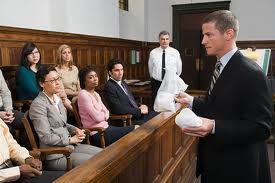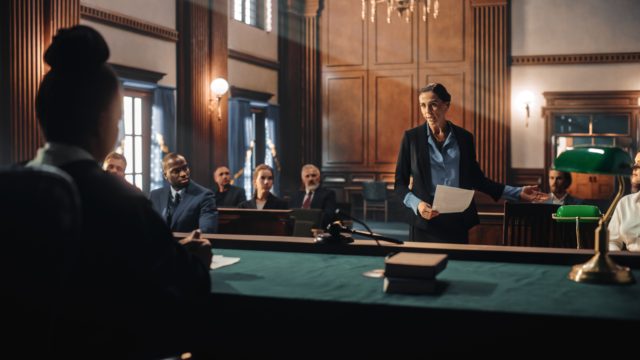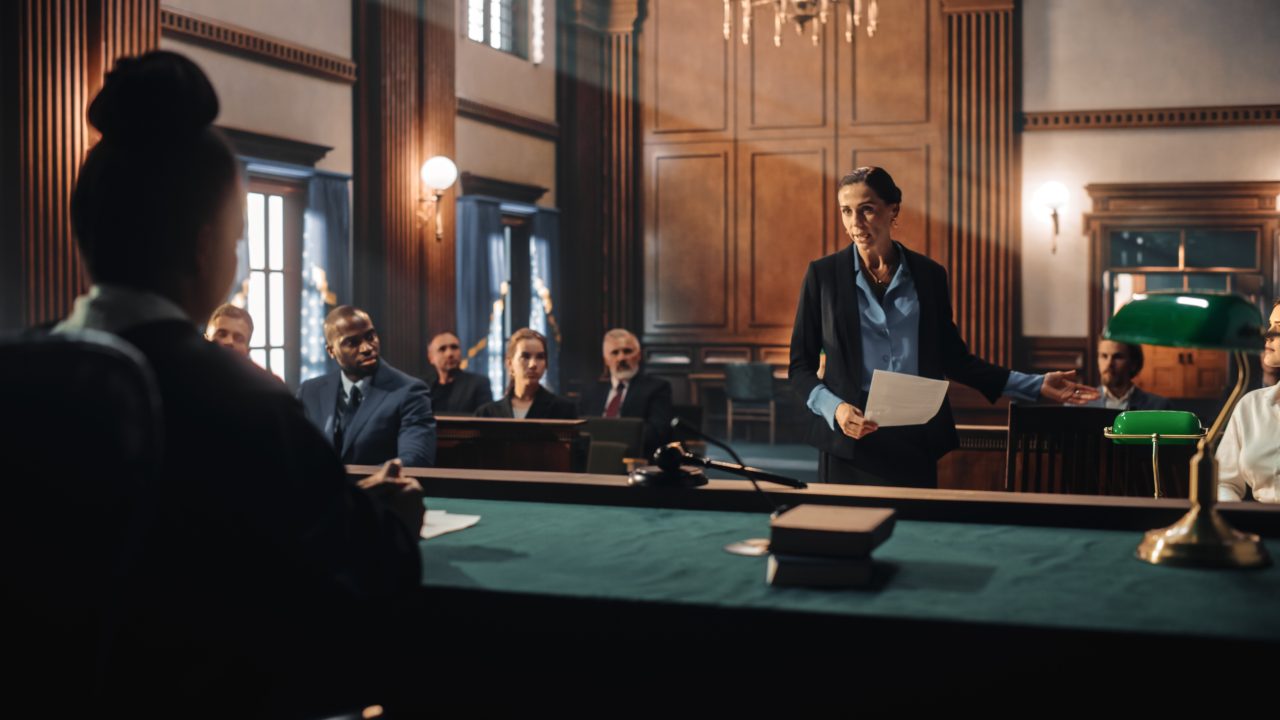What is the role of the jury in our legal system? A jury actually plays a critical role in the legal system. This group of people listens to evidence, analyses it, and comes to a final verdict. Put another way, a jury is a group of people called upon to decide the outcome of a legal case. In the Australian legal system, in criminal trials, juries decide whether a person is guilty or not guilty.
 Working as jurors on a trial gives you insight into how the judicial system works and how legal representatives present evidence to support their case. You also get to see first-hand how witnesses are questioned and how each side presents their arguments.
Working as jurors on a trial gives you insight into how the judicial system works and how legal representatives present evidence to support their case. You also get to see first-hand how witnesses are questioned and how each side presents their arguments.
Working on a jury can be an eye-opening and rewarding experience, so let’s take a look at what it means to be a juror, what tasks you will undertake if you serve, and why being selected for that role is an important responsibility. Read on to learn more about what juries do, and what role they play in the Australian legal system.
What Does a Jury Do and What Role Does It Play in the Legal System?
Being on a jury can be an intimidating prospect. Not only is it your first experience of the legal system and all its protocols, procedures, and terminology, but it also involves sitting in judgment of a fellow human being. If you’re called to serve on a jury, you will need to be prepared to impartially evaluate the evidence and make a fair decision based on that evidence.
What Does a Jury Do?
Juries are used in all legal systems and are relied on to be the voice of the community. Their goal is to find the truth and, as far as possible, they follow the rules of evidence and act as an impartial judge of the facts in the case. The Judge in a jury trial, on the other hand, is responsible for determining the law.
Jurors deliberate in private, but they may ask questions of the Judge if they need clarification of a particular issu in order to be able to perform their task properly. A jury is selected from the general populace. A “juries of one’s peers” means a jury of ordinary people who may have similar life experiences and backgrounds as the parties. In practise, juries in Australia are made up of people from a range of different backgrounds.
Who Can Serve on a Jury?
You must be a citizen (or otherwise registered to vote in NSW) and at least 18 years old to be able to serve on a jury. You’re not allowed to serve on a jury if you have been convicted of a a criminal offence, have lost your driver’s licence, are an undischarged bankrupt, or if you hold a public office or are a legal practitioner. Certain other categories of persons are also exempt, including clergy and medical practitioners. For a full list of those excluded or exempted from jury service, see Schedules 1 and 2 of the Jury Act 1977.
How Does Jury Service Work?
In general, you can expect the following:
You will receive a summons summoning you to jury service. This means that you’ve been chosen to serve on a jury. The summons will inform you of the date, time, and location of the court you will need to report to.
You will need to attend court as summonsed, and you will be empanelled, or formally selected as a juror. You must report to the court which is listed on your jury summons. After passing through security screening at the court building, you will be taken to the jury assembly room where you will be asked to produce your jury summons notice and evidence of your identity (usually your driver’s licence).
You will then be handed a juror card with a number on it. Your personal identifying details will not be used either during jury selection process or in court if you do serve on the jury. This ensures that your privacy is protected, and eliminates (or significantly reduces) any chance of someone connected to the case trying to contact you and attempting to tamper with your duties.
The jury process will be explained to you, and you will probably be shown a short video about what to expect in court.
How Are Juries Selected?
For a detailed explanation, see NSW Courts guide to How a Jury is Selected.
In brief, the steps for selection of a jury is as follows.
Empanelling a Jury
When a trial is ready to commence, potential jurors will be taken in groups into the courtroom, where members of the jury are selected.
The names of people involved in the trial will be read out. This will include witnesses, police, the accused and legal representatives. If you know any of these people, you must disclose this, as you are likely to be ineligible to sit on that jury.
Juror numbers are then drawn from a ballot box. If your number is called, you will be asked to take a seat in the jury box.
Challenging Jurors
The parties have a limited opportunity to select a jury panel that may be sympathetic to the prosecution case or to the defendant’s circumstances, as the case may be.
 Once you and the other selected jurors are in the jury box, the juror numbers will be called for a second time. The Crown (commonly known as the Prosecutor) and the defence lawyer can challenge (reject) a juror without giving any reason. They are each allowed a maximum of three challenges, unless the jury being empanelled consists of more than 12 jurors, in which event each party has an additional challenge without giving any reason.
Once you and the other selected jurors are in the jury box, the juror numbers will be called for a second time. The Crown (commonly known as the Prosecutor) and the defence lawyer can challenge (reject) a juror without giving any reason. They are each allowed a maximum of three challenges, unless the jury being empanelled consists of more than 12 jurors, in which event each party has an additional challenge without giving any reason.
If the prosecution and the defence lawyer agree on further challenges then potentially an unlimited number of further challenges can be made at any time during the challenge process. This may occur where both the prosecution and the defence lawyer form the view that any particular juror would not assist in the trial process.
The judge also occasionally decides that a person is not suitable to serve on a jury.
Further challenges are possible, but the party making the challenge needs to demonstrate grounds for making the challenge. The reason may be based on the fact (or belief) that the person is ineligible or is not impartial. This is generally sought to be established by way of affidavit by the person making such challenge.
These challenges “for cause” can be made before or after a party has exhausted all allowable challenges without the need for a reason.
Swearing the Jury In
Once the jury has been selected in this way, the jurors are then sworn in.
Excluded by Challege?
If you are not included in the final jury selection because of a challenge, you must remain at the court complex in case you are needed for another trial. A sheriff’s officer will tell you when you are free to go.
Types of Trials in Which There Is a Jury
Criminal trials have the most serious consequences and so almost always have juries in all Courts other than the Local Court. In civil cases, where there is a dispute between two parties and no one is at risk of going to jail, juries are far less common, and are smaller (usually 4 persons). Civil cases are disputes between two parties where one party is suing another for damages. These are usually over contracts, injuries, real estate, and other civil disputes.
Conclusion
Juries play a crucial role in the legal system. They offer a way for the community to participate in the legal process and make decisions about the guilt or innocence of a defendant, and the extent of their punishment. Juries are made up of a group of ordinary people who sit in judgment of a person accused of wrongdoing and make decisions based on the evidence presented in court. Because they represent the community, they are meant to be a fair and just representation of society.
If you are facing a jury trial (or any type of criminal proceedings), find out more about what is the role of the jury and call us today – (02) 9533 2269


